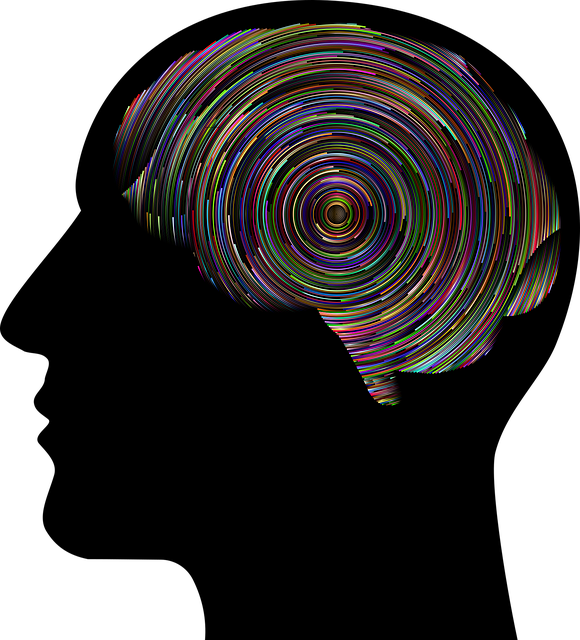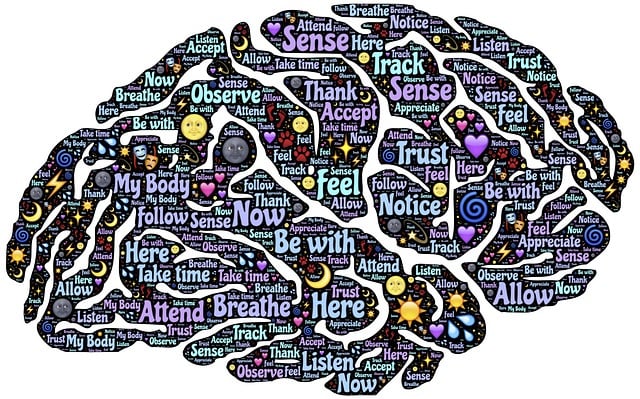Aurora Oppositional Defiance Disorder (AODD) is a mental health challenge characterized by opposition and defiance towards authority figures, impacting children's relationships, academics, and well-being. Specialized AODD therapy, including Cognitive Behavioral Therapy (CBT), Compassion Cultivation Practices (CCP), and mindfulness training, teaches coping strategies to manage emotions and improve relationships. Supportive environments and trauma-informed care, with stress management techniques and holistic practices, are key to effective treatment for AODD, fostering resilience and emotional well-being.
“Trauma support services play a pivotal role in aiding individuals struggling with Aurora Oppositional Defiance Disorder (AODD). This article delves into the multifaceted aspects of AODD, exploring its symptoms and the unique challenges it presents. We examine the transformative power of therapy, highlighting various therapeutic approaches and techniques for effective treatment.
Furthermore, we emphasize the significance of creating supportive environments and accessing trauma-informed care. By fostering resilience, individuals with AODD can regain control and embark on a path to holistic recovery.”
- Understanding Aurora Oppositional Defiance Disorder (AODD): Symptoms and Challenges
- The Role of Therapy in AODD Treatment: Approaches and Techniques
- Building a Supportive Environment: Creating Safe Spaces for Recovery
- Accessing Trauma-Informed Care: Services and Resources for Comprehensive Healing
- Fostering Resilience: Strategies to Empower Individuals with AODD
Understanding Aurora Oppositional Defiance Disorder (AODD): Symptoms and Challenges

Aurora Oppositional Defiance Disorder (AODD) is a mental health condition characterized by recurrent and persistent patterns of opposition and defiance towards authority figures. Those affected often display strong arguments with parents, teachers, or other figures in positions of power, refusing to comply with rules and requests. This disorder can significantly impact a child’s life, affecting their relationships, academic performance, and overall well-being.
Symptoms may include frequent temper tantrums, defiance, and anger, often leading to challenges in various settings. Children with AODD might struggle with self-awareness, finding it hard to recognize and understand their emotions and behaviors. This can make it difficult for them to express themselves constructively or develop coping skills. The disorder also presents challenges for parents and caregivers, who may feel overwhelmed by the constant power struggles. However, through specialized Aurora Oppositional Defiance Disorder therapy, which includes self-awareness exercises and stress management workshops within a supportive organization, children can learn valuable coping skills to navigate their emotions and improve their relationships.
The Role of Therapy in AODD Treatment: Approaches and Techniques

The role of therapy is pivotal in treating Aurora Oppositional Defiance Disorder (AODD), offering approaches tailored to address the unique challenges presented by this condition. Cognitive Behavioral Therapy (CBT) has proven effective, focusing on identifying and modifying negative thought patterns and behaviors. Through structured sessions, individuals learn coping strategies to manage impulsivity, anger, and defiance, fostering healthier emotional responses.
Alternative techniques such as Compassion Cultivation Practices (CCP) and mindfulness training have shown promise in alleviating symptoms associated with AODD. CCP encourages self-compassion and empathy, helping individuals navigate their emotions without resorting to oppositional or defiant behaviors. Incorporating stress management strategies alongside these therapeutic approaches can significantly contribute to the overall well-being of those struggling with AODD, offering them tools for anxiety relief and improved emotional regulation.
Building a Supportive Environment: Creating Safe Spaces for Recovery

Building a supportive environment is essential for effective trauma support services, especially when addressing complex conditions like Aurora Oppositional Defiance Disorder (AODD). Creating safe and nurturing spaces facilitates recovery by fostering trust and encouraging vulnerability among clients. This involves designing environments that are non-judgmental, promoting empathy and understanding to help individuals feel seen and heard.
Through the integration of Burnout Prevention Strategies for Healthcare Providers, resilience building, and compassion cultivation practices, these spaces can become catalysts for positive change. Such approaches not only enhance the overall well-being of healthcare providers but also enable them to offer more tailored support, addressing both the physical and emotional needs of clients on their journey towards recovery.
Accessing Trauma-Informed Care: Services and Resources for Comprehensive Healing

Accessing Trauma-Informed Care offers individuals a crucial path to healing and recovery. It involves services designed to understand and address complex emotional responses stemming from traumatic experiences, such as Aurora Oppositional Defiance Disorder (AODD). These specialized programs recognize that trauma can manifest in various ways, affecting not just the mind but also the body. By adopting a trauma-informed approach, therapists create safe spaces where clients feel empowered to share their stories and begin the journey towards profound transformation.
Comprehensive healing encompasses more than just therapy sessions. It includes resources like Mindfulness Meditation practices that teach individuals to cultivate present-moment awareness, thereby enhancing emotional regulation skills. Confidence-boosting activities tailored to trauma survivors’ unique needs can also be integrated into treatment plans. These strategies collectively support the development of healthy coping mechanisms and promote overall well-being, ensuring that those who have experienced trauma receive the holistic care they deserve.
Fostering Resilience: Strategies to Empower Individuals with AODD

In the realm of trauma support services, fostering resilience is a key strategy to empower individuals struggling with Aurora Oppositional Defiance Disorder (AODD). Beyond traditional therapy approaches, incorporating effective stress reduction methods can significantly enhance recovery. By teaching individuals coping mechanisms and mindfulness techniques, they gain tools to navigate challenges and reduce impulsive behaviors often associated with AODD. Crisis intervention guidance plays a pivotal role in these moments, enabling individuals to respond adaptively rather than reactively.
Additionally, integrating anxiety relief strategies into treatment plans has proven beneficial. Techniques such as cognitive-behavioral therapy (CBT) help individuals identify and challenge negative thought patterns, thereby reducing anxiety levels. When combined with structured support systems, these interventions create a robust framework that strengthens resilience, allowing those with AODD to lead fulfilling lives despite past traumas or ongoing stressors.
The journey towards healing and managing Aurora Oppositional Defiance Disorder (AODD) involves a multifaceted approach. By understanding the unique challenges presented by AODD, leveraging various therapeutic techniques, and creating supportive environments, individuals can navigate their path to recovery. Accessing trauma-informed care and fostering resilience are pivotal steps in empowering those affected by AODD. Through comprehensive strategies and resources, individuals can find safety, support, and the tools needed to thrive. With dedicated therapy and the right resources, healing and growth are within reach for everyone, regardless of their past traumas or current challenges.













